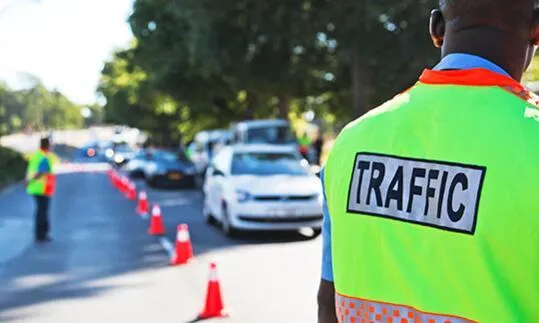
Motorists in South Africa face a delay in the Aarto Amendment Act's implementation, originally set for December, now postponed to July 2026 due to municipal readiness issues.
Image: File picture
The implementation of the Administrative Adjudication of Road Traffic Offences (Aarto) system which was meant to commence on December 1 this year, has been postponed to next year.
In a statement on Monday the transport ministry said Transport Minister Barbara Creecy and deputy minister Mkhuleko Hlengwa have taken a decision to defer the implementation of the system to July 1, 2026.
The statement said the postponement comes after an assessment was done by the department of the state of readiness of the municipalities that were to form part of the first implementation phase.
The system was set to go live in 69 municipalities on December 1 in the initial plan with other municipalities set to follow later.
The ministry said issues were identified during the assessment, including:
• The finalisation of training of both law enforcement and back office personnel,
• The harmonisation of current law enforcement systems used by various municipalities, and funding thereof.
The ministry said a new proclamation with new staggered implementation dates would be published with July 1, 2026 being the official implementation date.
It said phased approach of implementation will still be maintained as initially envisaged. In terms of this approach, the introduction of the points demerit system and rehabilitation programme will commence on September 1, 2026.
The Road Traffic Infringement Authority (RTIA), which manages South Africa's road safety, driver compliance and administers Aarto, recently warned motorists against fraudulent messages and fake websites falsely claiming to collect Aarto-related traffic fines.
The authority is the only agency legally authorised to administer and process Aarto fines.
”Motorists are strongly advised to make payments only through verified and approved payment platforms. Motorists must always make use of the 16-digit infringement notice number as a reference which does not need the RTIA bank account to make payments on the official payment platforms,” the RTIA said this week.
It also warned that any other website, SMS link, or WhatsApp message requesting payment of fines must be treated with suspicion, especially if it directs users to unfamiliar URLs or non-governmental accounts.
”The RTIA has noted the rise in fraudulent traffic fine notifications circulating online. We urge all motorists to verify the source of any message before making payment. When in doubt, visit the RTIA website or contact our offices directly. A few moments of verification can prevent significant financial loss,” the authority stated.
The Organisation Undoing Tax Abuse (Outa) CEO Wayne Duvenage said: “This delay was inevitable. Aarto was never ready, not in 2020, not in 2024, and certainly not now. These repeated postponements confirm what we have warned all along: the system is unworkable in its current form.”
Outa said it has tracked the system’s development for over a decade, consistently raising concerns about its practicality, transparency and alignment with the principles of fair administration.
“We support any system that improves road safety and encourages motorists to obey the law,” said Duvenage.
“But regulation must be clear, fair and functional. Aarto fails that test.”
He added that the latest regulations, rushed through without proper public participation, have only deepened concerns.